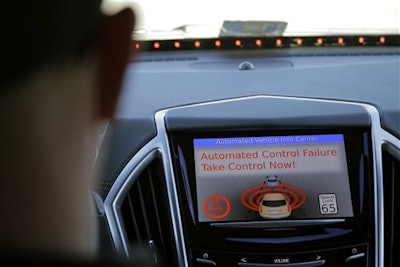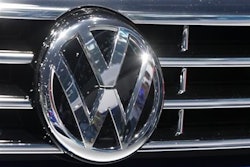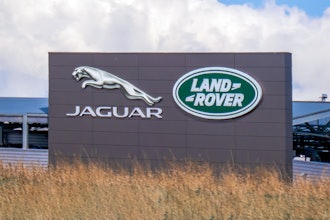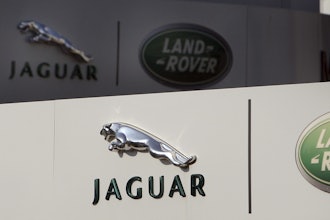
Self-driving cars being tested by Google, Volkswagen, and other companies still require human control sometimes as they traverse California’s public roads, the state Department of Motor Vehicles said in a report released Wednesday.
Except, perhaps, for Tesla – the electric vehicle company has already rolled out their consumer-ready highway Autopilot and does not state how many miles their autonomous system drove in California, but reported zero instances in which a human needed to unexpectedly take over.
Google cars drove 424,00 miles since on-road testing started in September 2014, and said that humans needed to take the wheel 341 times. The human intervention could have been due to technology problems, safety concerns or the car itself requesting assistance. Of those instances, 11 of them would have resulted in an accident if the driver hadn’t taken control. In 272 cases, the car’s technology – either its software or onboard sensors – failed to correctly interact with the road. For example, it might have failed to see a traffic light or yield to pedestrians, or unknowingly committed traffic violations. While the problems were detailed, there were also some cases where reckless human drivers contributed to the need for assistance, or when the Google car made an “unwanted maneuver.”
“Our objective is not to minimize disengagements,” Google’s official report from the DMV read. “Rather, it is to gather, while operating safely, as much data as possible to enable us to improve our self-driving system. Therefore, we set disengagement thresholds conservatively.”
Google is doing better than most of its competitors, though: Nissan cars were tested 1,485 miles on public roads and needed human intervention 106 times. (Google released its numbers on Tuesday, in advance of the official report, in an effort to be transparent.)
Volkswagen’s two cars drove 14,945 miles and reported 260 disengagements of the autonomous systems due to failures.
Mercedes-Benz reported that its five vehicles drove 107 miles and required 44 disengagements.
Along with automakers Google and Tesla, Audi, Nissan, Volkswagen, Mercedes-Benz, and parts suppliers Bosch and Delphi were also permitted to test self-driving cars on public roads in California.
"We're seeing lots of improvement. But it's not quite ready yet," said Chris Urmson, the leader of Google’s self-driving car project. "That's exactly why we test our vehicles with a steering wheel and pedals."
(Via ABC.)






















